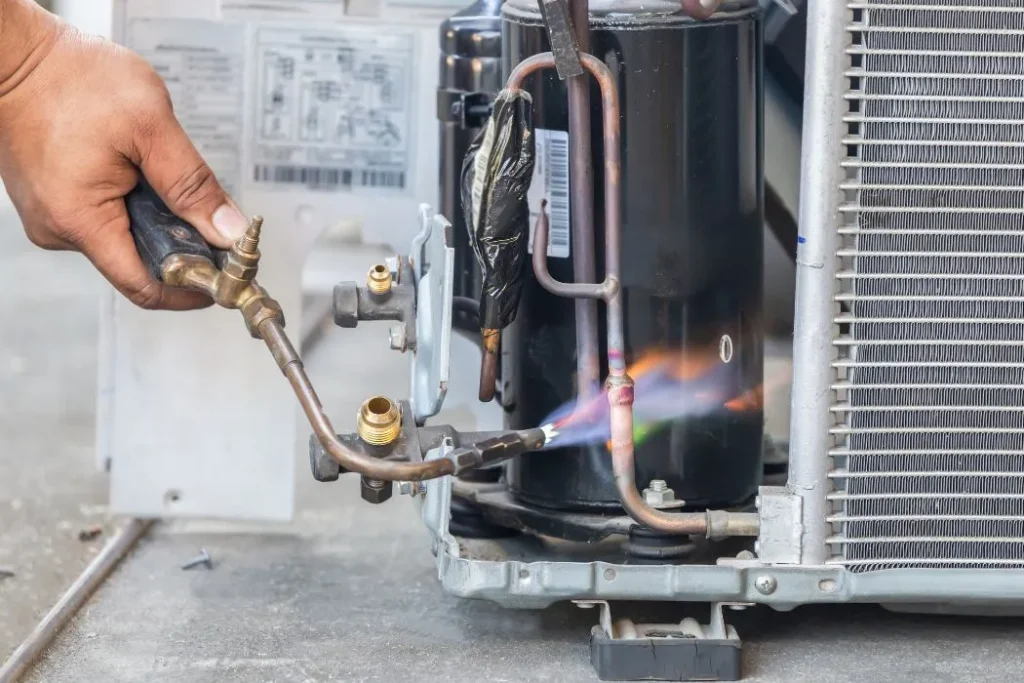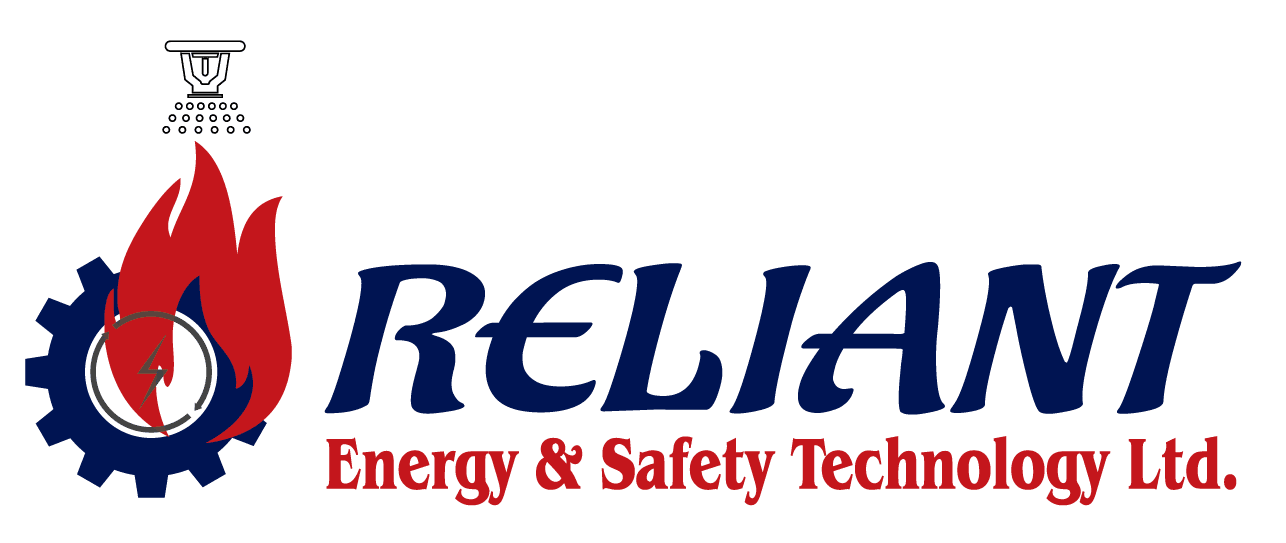What is an HVAC System?
HVAC (Heating, Ventilation, and Air Conditioning) systems provide an all-in-one solution for maintaining indoor comfort. These systems regulate temperature, ensure proper ventilation, and maintain air quality. With both heating and cooling functions, HVAC systems are ideal for regions with seasonal weather changes.
Key Features of HVAC Systems:
- Heating Functionality: HVAC systems include a furnace or heat pump for warmth during cold weather.
- Cooling Functionality: The air conditioning component provides relief during hot months.
- Ventilation: HVAC systems promote airflow, removing pollutants and ensuring fresh air circulation.
- Year-Round Usability: They are ideal for areas with seasonal weather variations, offering consistent comfort in all conditions.
- Visit our detailed article to learn more about the importance of electrical substantial services in Bangladesh.

What is an AC System?
AC (Air Conditioning) systems are designed exclusively for cooling indoor spaces. Commonly used in warm climates, they can efficiently reduce indoor temperatures and maintain a comfortable environment. Standalone AC systems include window units, split systems, and central cooling units.
Key Features of AC Systems:
- Cooling-Only Functionality: Focused on reducing temperatures in warm climates.
- Various Models Available: Includes central air conditioners, window units, and ductless mini-splits.
- Compact Design: Certain models, like portable or window ACs, are space-saving and easy to install.
The Differences Between HVAC and AC Systems
Functionality
- HVAC Systems: Offer both heating and cooling, making them versatile for year-round use.
- AC Systems: Focus exclusively on cooling, making them more suitable for hot climates.
Components
- HVAC Systems: Include a furnace, air conditioner, ductwork, and ventilation system.
- AC Systems: Typically consist of an outdoor unit, indoor evaporator, and refrigerant lines.
Energy Efficiency
- HVAC systems often feature programmable thermostats and zoning capabilities, optimizing energy usage for different areas in your home.
- AC systems’ efficiency is measured by their Seasonal Energy Efficiency Ratio (SEER), with higher ratings indicating better performance.
Installation Costs
- HVAC systems require a higher upfront investment due to their complexity and additional components like ductwork.
- AC systems are simpler and cheaper to install, especially ductless models.
Maintenance Requirements
- HVAC systems require regular maintenance of multiple components, including ducts, filters, and the heating system.
- AC systems are easier to maintain, with a focus on cleaning or replacing filters and servicing refrigerant lines.
Environmental Impact
HVAC Systems
Advanced HVAC systems with eco-friendly refrigerants and energy-efficient technologies have a lower environmental footprint.
AC Systems
Efficient AC units with high SEER ratings are less energy-intensive but lack the comprehensive functionality of HVAC systems, potentially leading to higher energy consumption when combined with separate heating solutions.
When to Choose an HVAC System
HVAC systems are ideal for:
- Regions with Seasonal Weather: They offer heating in winter and cooling in summer.
- Larger Homes: Centralized HVAC systems can distribute temperature control evenly across multiple rooms.
- Indoor Air Quality: Ventilation ensures better air circulation, improving health and comfort.
- Functionality: HVAC systems offer heating and cooling, while AC systems focus only on cooling.
- Energy Usage: HVAC systems can be more energy-efficient due to programmable features and zoning, whereas AC systems excel in hot climates but lack year-round functionality.
Advantages of HVAC Systems
Dual Functionality (Heating and Cooling)
HVAC systems are versatile, providing both heating and cooling capabilities. This dual-purpose functionality eliminates the need for separate heating and cooling appliances, saving space and ensuring year-round comfort.
Energy Efficiency Features
Modern HVAC systems include energy-saving features like variable speed motors and programmable thermostats. These innovations help homeowners reduce energy consumption and cut utility costs.
Year-Round Comfort
Whether it’s a scorching summer or a freezing winter, HVAC systems maintain a consistent indoor climate. By integrating heating and cooling systems, they provide unparalleled comfort throughout the year.
Value Addition to Homes
Installing an HVAC system can significantly enhance a home’s resale value. Prospective buyers often view these systems as a premium feature due to their convenience and efficiency.
Drawbacks of HVAC Systems
Higher Initial Installation Costs
Installing an HVAC system requires a significant upfront investment, particularly for ductwork and high-quality components. However, this cost can be offset by long-term savings on energy bills.
Maintenance and Repair Requirements
With more components, HVAC systems demand regular maintenance and occasional repairs, which can increase overall upkeep costs.
Space Requirements
HVAC systems often require dedicated space for components like furnaces and ductwork. Homes with limited space may need structural adjustments to accommodate these systems.
When to Choose an AC System
AC systems are best suited for:
- Hot Climates: Where cooling is the primary concern throughout the year.
- Small Spaces: Compact models like window units or ductless mini-splits are perfect for apartments or single rooms.
- Cost-Effective Cooling: For those who need an affordable solution to maintain cool indoor temperatures.
Advantages of AC Systems
Cost-Effective Cooling Solutions
AC systems are typically less expensive to install compared to HVAC systems. They are an excellent choice for those seeking affordable and efficient cooling in hot climates.
Compact and Space-Saving Designs
Ductless options, such as mini-split systems, offer cooling without extensive structural modifications. These systems are ideal for apartments or smaller homes.
Ideal for Warm-Weather Regions
In regions with consistently hot weather, standalone AC systems are often the most practical and cost-efficient choice.
Drawbacks of AC Systems
Limited Functionality (Cooling Only)
AC systems are restricted to cooling, making them insufficient for areas with cold winters.
Seasonal Dependence on Additional Heating Solutions
Homeowners may need supplementary heating devices during winter, which adds to the overall cost and inconvenience.
Potentially Higher Long-Term Costs in Mixed Climates
In regions with fluctuating weather, the combined cost of running separate heating and cooling systems can outweigh the initial savings of installing an AC system.
Why Choose Reliant-Est.com?
Trusted Expertise in HVAC and AC Systems
Reliant-Est.com offers unparalleled expertise in HVAC and AC installations. Our team of certified professionals ensures each system is tailored to your home’s unique needs.
Personalized Solutions for Every Home
We prioritize your comfort by offering customized solutions, whether it’s a comprehensive HVAC system or a standalone AC unit.
Competitive Pricing and Unmatched Service
With competitive rates and exceptional customer support, Reliant-Est.com stands out as a leader in the industry. Trust us to deliver reliable, cost-effective solutions.
For all your fire protection needs, explore our fire and safety equipment company for top-quality solutions to ensure safety and compliance.
Conclusion
Choosing between HVAC and AC systems depends on your unique needs, climate, and budget. HVAC systems offer comprehensive functionality and long-term savings, while AC systems excel in cost-effective cooling for warm climates. Trust Reliant-Est.com for expert guidance in selecting the perfect solution for your home.
FAQs
Q1. What is the difference between HVAC and AC systems?
HVAC systems provide heating and cooling, while AC systems are designed solely for cooling.
Q2. Are HVAC systems more energy-efficient than AC systems?
Yes, HVAC systems with energy-saving features like programmable thermostats and zoning controls often outperform standalone AC systems in efficiency.
Q3. What is the typical lifespan of an HVAC system?
With proper maintenance, HVAC systems can last 15–20 years.
Q4. How can I determine which system is best for my home?
Consider your climate, budget, and preferences. Consult with professionals like Reliant-Est.com for expert advice.
Q5. Do HVAC systems require more maintenance than AC systems?
Yes, because they have more components, HVAC systems often require more frequent upkeep.
Q6. How does climate influence the choice between HVAC and AC?
In regions with extreme weather variations, HVAC systems are preferable. AC systems work best in hot, consistent climates.

